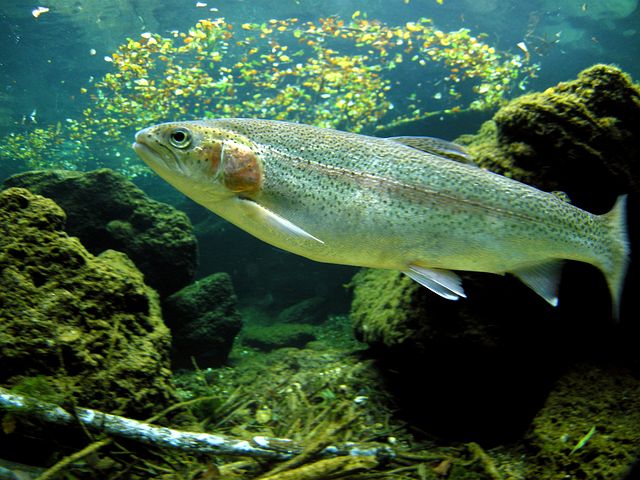It’s already known some fish have big hearts — at least during the winter.
Now a U of G professor has identified a protein that enables fish to change the size of their hearts based on the temperature of the water.
The finding might yield clues to treating or preventing heart damage in humans.
 “Fish put on collagen in the winter and take it off in the summer,” said Todd Gillis, whose study, conducted with PhD student Elizabeth Johnston, was recently published in the Journal of Experimental Biology.
“Fish put on collagen in the winter and take it off in the summer,” said Todd Gillis, whose study, conducted with PhD student Elizabeth Johnston, was recently published in the Journal of Experimental Biology.
“They do this so they can keep swimming over a broad range of temperatures.”
Understanding how fish are able to add and remove collagen is important because fish hearts resemble human hearts in composition, said Gillis, a professor in the Department of Integrative Biology.
When our heart becomes injured from a heart attack or other stressor, the body responds by building a scar composed of collagen in the damaged area. This scar is permanent and impairs cardiac function, eventually resulting in heart failure.
“If we can find out how fish are able to naturally add and remove this tissue, we can develop treatment modalities for humans that enable a more controlled way for the heart to repair itself after a heart attack,” said Gillis.
Johnston examined the cells in rainbow trout hearts that regulate collagen. The researchers exposed the cells to the protein TGF-Beta1, known to be a signal for regulating connective tissue in humans.
“The hypothesis is that the drop in temperature increases blood viscosity and this makes the heart work harder, leading to an increase in the release of the TGF-Beta1 protein,” said Gillis.
Laboratory tests confirmed that exposing the fish heart cells to TGF-Beta1 protein led to more collagen production.

Previously, Gillis’s lab demonstrated that rainbow trout can enlarge their heart by as much as 50 per cent in colder temperatures. The heart will remain larger and stronger in water that is around 4 C and return to normal size at temperatures between 12 and 17 C.
Trout, salmon and other fish that remain active throughout the year also have this ability, added Gillis.
His research team is now studying how fish remove heart collagen in warmer months.
“This work is targeting molecular pathways involved in regulating collagen degradation pathways. The ultimate goal is applying what we learn in trout hearts to cardiac fibrosis in humans so that we can help control or reduce this response to injury.”
Contact
Prof. Todd Gillis
Department of Integrative Biology
tgillis@uoguelph.ca